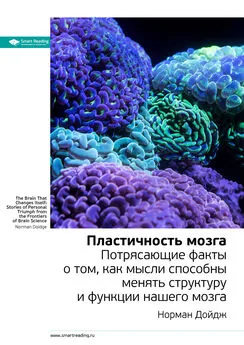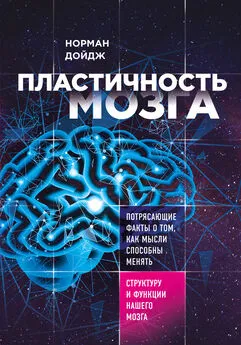Джон Тирни - Эффект негативности. Как способность замечать плохое трансформирует нашу реальность
- Название:Эффект негативности. Как способность замечать плохое трансформирует нашу реальность
- Автор:
- Жанр:
- Издательство:Литагент 5 редакция «БОМБОРА»
- Год:2021
- Город:Москва
- ISBN:978-5-04-117523-8
- Рейтинг:
- Избранное:Добавить в избранное
-
Отзывы:
-
Ваша оценка:
Джон Тирни - Эффект негативности. Как способность замечать плохое трансформирует нашу реальность краткое содержание
В основе большинства отрицательных событий лежит эффект негативности. Он вынуждает людей принимать неверные решения, чем разрушает их жизнь!
Авторы бестселлера «Сила воли», известный социальный психолог Рой Баумайстер и редактор City Journal Джон Тирни, провели масштабное исследование человеческой способности видеть плохое и не замечать хорошее. Они вывели ряд закономерностей эффекта негативности и определили стратегии борьбы с ним.
Из этой книги вы узнаете:
• почему наказание намного эффективнее награды,
• как заставить работать рациональную часть мозга и сдерживать негатив в личной и общественной жизни,
• как научиться извлекать пользу из плохих событий,
• как осознанно подавлять импульсы, которые вызывают парализующую неуверенность, панические атаки и фобии.
Эффект негативности. Как способность замечать плохое трансформирует нашу реальность - читать онлайн бесплатно ознакомительный отрывок
Интервал:
Закладка:
86 чтобы понизить уровень тревожности: J. M. Kuckertz and N. Amir, «Attention Bias Modification for Anxiety and Phobias: Current Status and Future Directions,» Current Psychiatry Reports 17 (2015): 1–8; C. Mogoaşe, D. David, and E. H. Koster, «Clinical Efficacy of Attentional Bias Modification Procedures: An Updated Meta-analysis,» Journal of Clinical Psychology 70 (2014): 1133–57; and L. S. Hallion and A. M. Ruscio, «A Meta-analysis of the Effect of Cognitive Bias Modification on Anxiety and Depression,» Psychological Bulletin 137 (2011): 940–58.
86 публичное выступление: N. Amir, G. Weber, C. Beard, J. Bomyea, and C. T. Taylor, «The Effect of a Single-Session Attention Modification Program on Response to a Public-Speaking Challenge in Socially Anxious Individuals,» Journal of Abnormal Psychology 117 (2008): 860–68.
86 страх высоты: S. A. Steinman and B. A. Teachman, «Reaching New Heights: Comparing Interpretation Bias Modification to Exposure Therapy for Extreme Height Fear,» Journal of Consulting and Clinical Psychology 82 (2014): 404–17.
90 поставив рекорд: J. Tierney, «24 Miles, 4 Minutes and 834 M.P.H., All in One Jump,» New York Times, October 14, 2012, https://www.nytimes.com/2012/10/15/us/felix-baumgartner-skydiving.html.
91 со Стивеном Поттером: S. Potter, The Complete Upmanship, Including Gamesmanship, Lifemanship, One-Upmanship and Supermanship (New York: Holt, Rinehart and Winston, 1971).
92 в продуманных экспериментах: T. M. Amabile, «Brilliant but Cruel: Perceptions of Negative Evaluators,» Journal of Experimental Social Psychology 19 (1983): 146–56.
94 продемонстрировала в другом исследовании: T. M. Amabile and A. H. Glazebrook, «A Negativity Bias in Interpersonal Evaluation,» Journal of Experimental Social Psychology 18 (1982): 1–22.
94 Элизабет Беннет:J. Austen, Pride and Prejudice (New York: Penguin Classics, 2009), 196–97, Kindle.
95 Чтобы проверить эти фразы: R. Hamilton, K. D. Vohs, and A. L. McGill, «We’ll Be Honest, This Won’t Be the Best Article You’ll Ever Read: The Use of Dispreferred Markers in Word-of-Mouth Communication,» Journal of Consumer Research 41 (2014): 197–212.
96 Мэри Кей Эш: M. K. Ash, Mary Kay on People Management (London: Futura, 1984), 39.
96 Когда Дуглас Мейнард:D. W. Maynard, Bad News, Good News: Conversational Order in Everyday Talk and Clinical Settings (Chicago: University of Chicago Press, 2003).
97 Более 75 % людей: A. M. Legg and K. Sweeny, «Do You Want the Good News or the Bad News First? The Nature and Consequences of News Order Preferences,» Personality and Social Psychology Bulletin 40 (2014): 279–88, https://doi.org/10.1177/0146167213509113, and L. L. Marshall and R. F. Kidd, «Good News or Bad News First?» Social Behavior and Personality 9 (1981): 223–26.
97 как обнаружил Баумайстер: R. F. Baumeister and K. J. Cairns, «Repression and Self-Presentation: When Audiences Interfere with Self-Deceptive Strategies,» Journal of Personality and Social Psychology 62 (1992): 851–62.
98 замечание Томаса Джефферсона: T. Jefferson, «Letter to Francis Hopkinson, March 13, 1789,» Founders Online, https://founders.archives.gov/documents/Jefferson/01–14-02–0402.
100 « последовательность рассмотрения перспектив»: из личного общения с Дугласом Мэйнардом и его книги «Bad News, Good News».
101 человеку станет лучше: A. Nguyen, A. M. Legg, and K. Sweeny, «Do You Want the Good News or the Bad News First? News Order Influences Recipients’ Mood, Perceptions, and Behaviors,» University of California Riverside Undergraduate Research Journal 5 (2011): 31–36.
101 исследования последовательных стратегий: Legg and Sweeny, «Do You Want the Good News or the Bad News First?»
102 последующей негативной информации: Y. Trope and E. Neter, «Reconciling Competing Motives in Self-Evaluation: The Role of Self-Control in Feedback Seeking,» Journal of Personality and Social Psychology 66 (1994): 646–57, https://dx.doi.org/10.1037/0022–3514.66.4.646.
103 Хваля кого-то: E. Chan and J. Sengupta, «Insincere Flattery Actually Works: A Dual Attitudes Perspective,» Journal of Marketing Research 47 (2010): 122–33; C. Nass, The Man Who Lied to His Laptop (New York: Current, 2010), 16–38.
104 Когда Рональда Рейган: E. I. Koch, «Reagan’s Afterlife on Earth,» Jewish World Review, June 8, 2004, http://jewishworldreview.com/0604/koch_reagan.php3.
105 Ли Дэниелс: S. W. Hunt and L. Rose, «Lee Daniels, Damon Lindelof, A-List Writers on Race, Ignoring Critics, an ‘Empire’ Axing,» Hollywood Reporter, May 11, 2015, https://www.hollywoodreporter.com/features/lee-daniels-damon-lindelof-a-794430.
105 заметил Уинстон Черчилль: Parliamentary Debates (Hansard), January 27, 1940, quoted in W. S. Churchill and R. Langworth, Churchill by Himself: In His Own Words (New York: RosettaBooks, 2013), «Maxims,» Kindle.
107 Лексикологи проследили: M. Quinion, «Carrot and Stick,» World Wide Words, 2009, http://www.worldwidewords.org/qa/qa-car4.htm, and J. Freeman, «Carrot Unstuck: A New Twist in an Old Debate,» Boston.com, March 8, 2009, http://archive.boston.com/bostonglobe/ideas/articles/2009/03/08/carrot_unstuck/.
107 широко распространенную историю: «The Neighbour-in-Law,» in L. M. Child, Fact and Fiction: A Collection of Stories (New York: C. S. Francis, 1846), 156–57.
107 Американский журнал: The Eclectic Magazine, August 1851, quoted in Quinion, «Carrot and Stick.»
108 заставляя мулов: G. C. Armistead, Horses and Mules in the Civil War: A Complete History with a Roster of More Than 700 War Horses (Jefferson, NC: McFarland, 2013).
108 безбожным народом: R. Finke and R. Stark, The Churching of America, 1776–2005: Winners and Losers in Our Religious Economy (New Brunswick, NJ: Rutgers University Press, 2005), chap. 2, Kindle.
108 выпивали по шесть кружек в день: J. Kross, «‘If You Will Not Drink with Me, You Must Fight with Me’: The Sociology of Drinking in the Middle Colonies,» Pennsylvania History 64 (1997): 28–55.
109 отчитывался в Филадельфии Бенджамин Франклин: B. Franklin, Autobiography of Benjamin Franklin (New York: Henry Holt, 1916), chap. XI, Kindle.
109 Ад на Земле: Исторический материал в этом разделе взят из Finke и Starke «Churching of America».
110 проповедь в Джорджии: G. Whitefield, The Collected Sermons of George Whitefield (Jawbone Digital, 2015), loc. 7265–7304 of 14,042, Kindle.
110 проповеди 1741 года: J. Edwards, Sinners in the Hands of an Angry God (Musaicum Books, 2018), «1. Sinners in the Hands of an Angry God,» Kindle.
112 объяснил епископ Уилки: R. B. Wilke, And Are We Yet Alive? (Nashville: Abingdon Press, 1986), 98.
113 воспринимали бога: A. F. Shariff and A. Norenzayan, «Mean Gods Make Good People: Different Views of God Predict Cheating Behavior,» International Journal for the Psychology of Religion 21 (2011): 85–96. See also O. Yilmaz and H. G. Bahçekapili, «Supernatural and Secular Monitors Promote Human Cooperation Only If They Remind of Punishment,» Evolution and Human Behavior 37 (2016): 79–84.
113 сравнил уровень преступности: A. F. Shariff and M. Rhemtulla, «Divergent Effects of Beliefs in Heaven and Hell on National Crime Rates,» PLoS ONE 7 (2012): e39048. https://doi.org/10.1371/journal.pone.0039048. See also «Updated Heaven, Hell and Crime Data for Shariff & Rhemtulla 2012,» Sharifflab, September 8, 2015, http://sharifflab.com/updated-heaven-hell-and-crime-data-for-shariff-rhemtulla-2012/.
114 Джон Гарсия сообщил: J. Garcia, D. J. Kimeldorf, and R. A. Koelling, «Conditioned Aversion to Saccharin Resulting from Exposure to Gamma Radiation,» Science 122 (1955): 157–58.
115 Исследователи в Бельгии: F. Baeyens, P. Eelen, O. Van den Bergh, and G. Crombez, «Flavor-Flavor and Color-Color Conditioning in Humans,» Learning and Motivation 21 (1990): 434–55.
115 детей и шарики: A. F. Costantini and K. L. Hoving, «The Effectiveness of Reward and Punishment Contingencies on Response Inhibition,» Journal of Experimental Child Psychology 16 (1973): 484–94.
116 ваша память улучшается: J. P. Forgas, «Don’t Worry, Be Sad! On the Cognitive, Motivational, and Interpersonal Benefits of Negative Mood,» Current Directions in Psychological Science 22 (2013): 225–32.
116 ещё и лаконичнее: A. S. Koch, J. P. Forgas, and D. Matovic, «Can Negative Mood Improve Your Conversation? Affective Influences on Conforming to Grice’s Communication Norms,» European Journal of Social Psychology 43 (2013): 326–34.
116 меньше влияли: J. P. Forgas, «Can Negative Affect Eliminate the Power of First Impressions? Affective Influences on Primacy and Recency Effects in Impression Formation,» Journal of Experimental Social Psychology 41 (2011): 425–29.
116 способность заметить лжецов:J. P. Forgas and R. East, «On Being Happy and Gullible: Mood Effects on Skepticism and the Detection of Deception,» Journal of Experimental Social Psychology 44 (2008): 1362–67.
116 громкие звуки: L. Notebaert, M. Tilbrook, P. J. F. Clarke, and C. Macleod, «When a Bad Bias Can Be Good: Anxiety-Linked Attentional Bias to Threat in Contexts Where Dangers Can Be Avoided,» Clinical Psychological Science 5 (2017): 485–96.
117 страх показаться толстыми: S. E. Dalley. P. Toffanin, and T. V. Pollet, «Dietary Restraint in College Women: Fear of an Imperfect Fat Self Is Stronger Than Hope of a Perfect Thin Self,» Body Image 9 (2012): 441–47.
117 донорам крови: E. Y. Chou and J. K. Murnighan, «Life or Death Decisions: Framing the Call for Help,» PLoS ONE 8 (2013): e57351, https://doi.org/10.1371/journal.pone.0057351.
117 Десятки других исследований: M. B. Tannenbaum et al., «Appealing to Fear: A Meta-analysis of Fear Appeal Effectiveness and Theories,» Psychological Bulletin 141 (2015): 1178–204.
117 подметил доктор Джонсон: «Поверьте, сэр, когда человек знает, что его повесят через две недели, его разум хорошо сосредотачивается» Цитируется в J. Boswell, The Life of Samuel Johnson, C. Hibbert, ed. (London: Penguin English Library, 1979), 231.
Читать дальшеИнтервал:
Закладка:




![Медина Мирай - Зазеркалье Нашей Реальности [litres]](/books/1143348/medina-miraj-zazerkale-nashej-realnosti-litres.webp)





